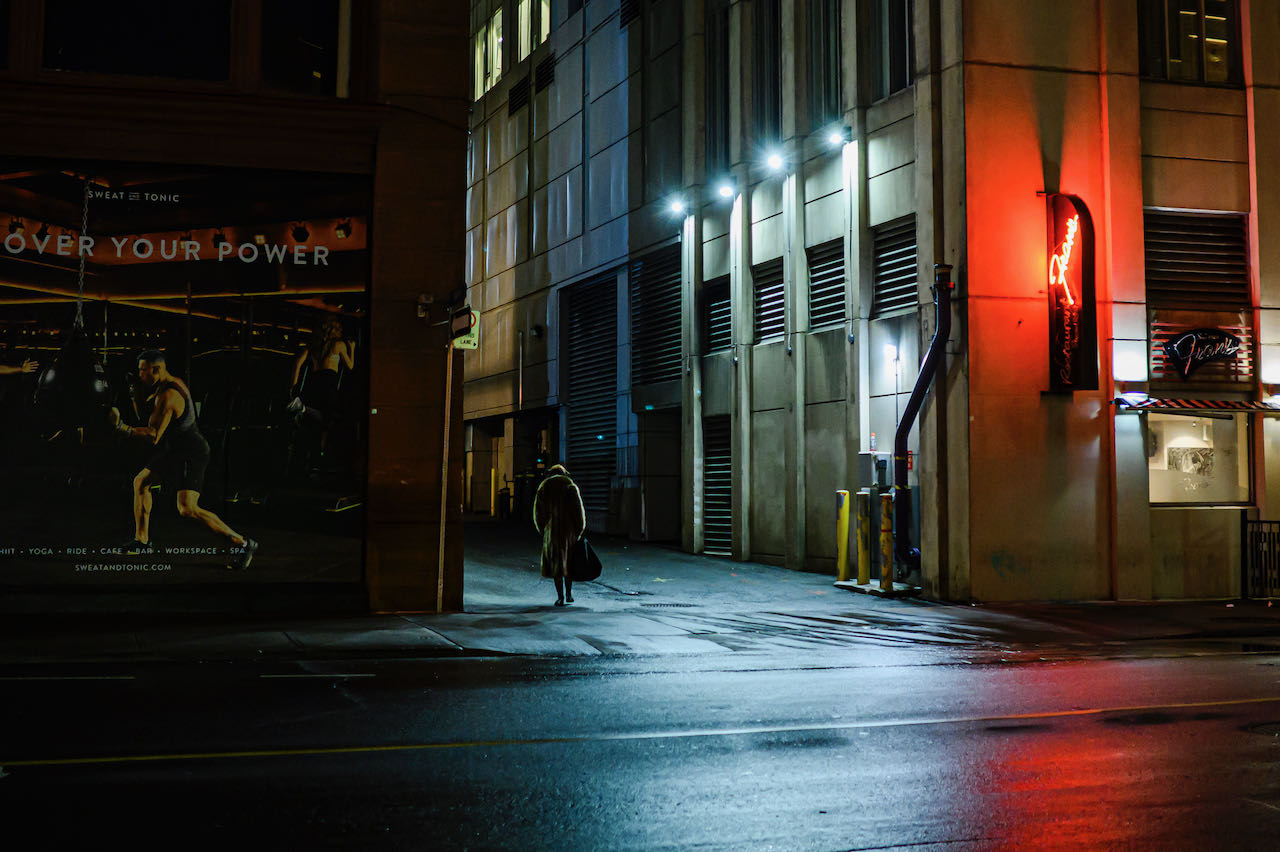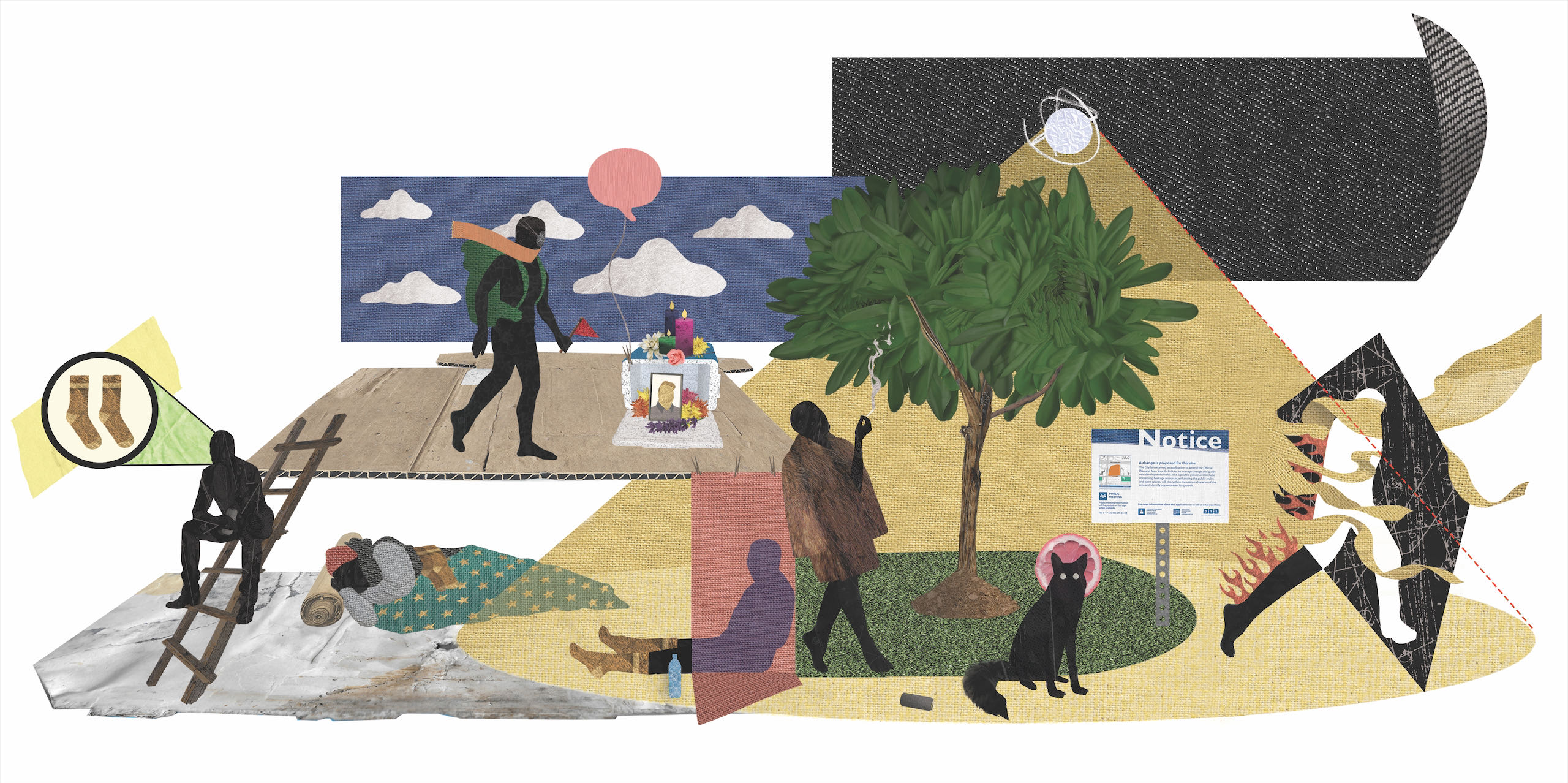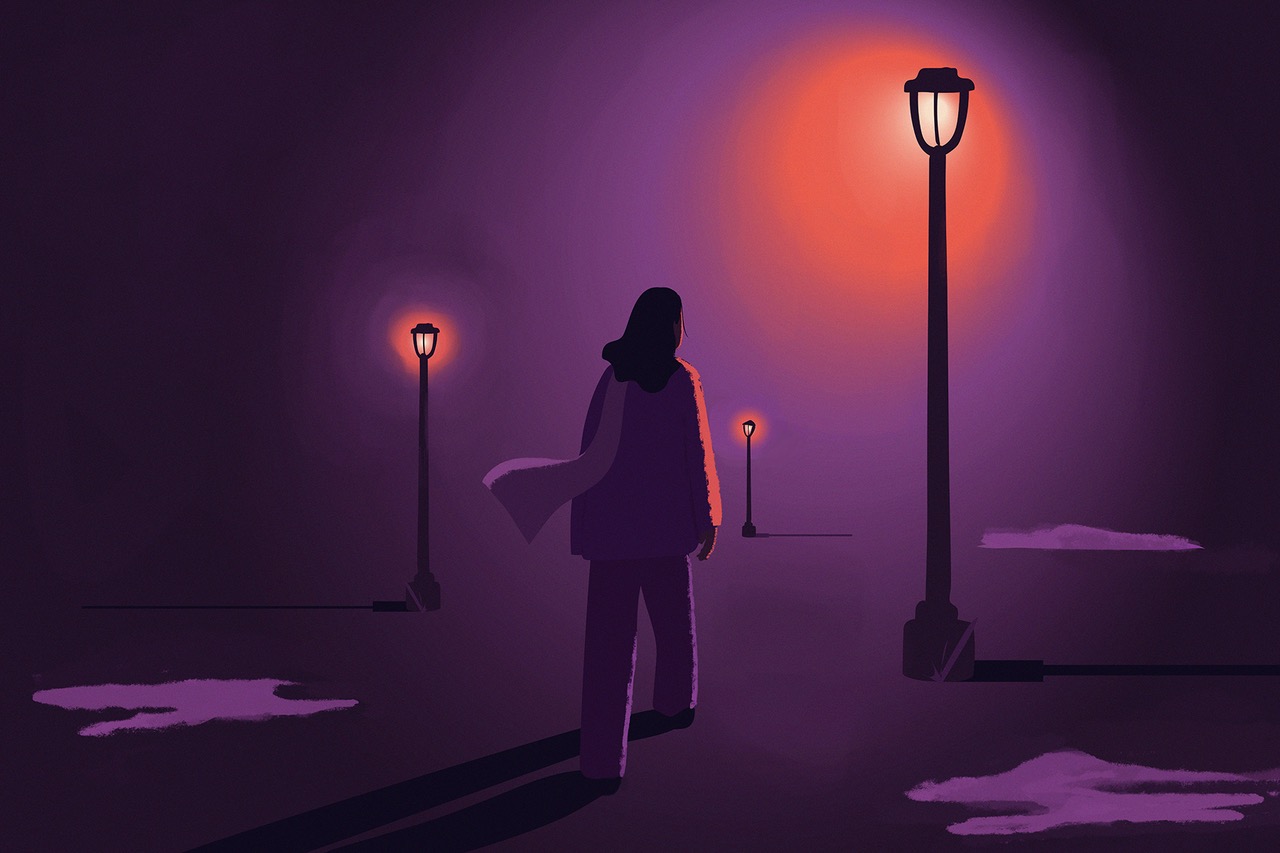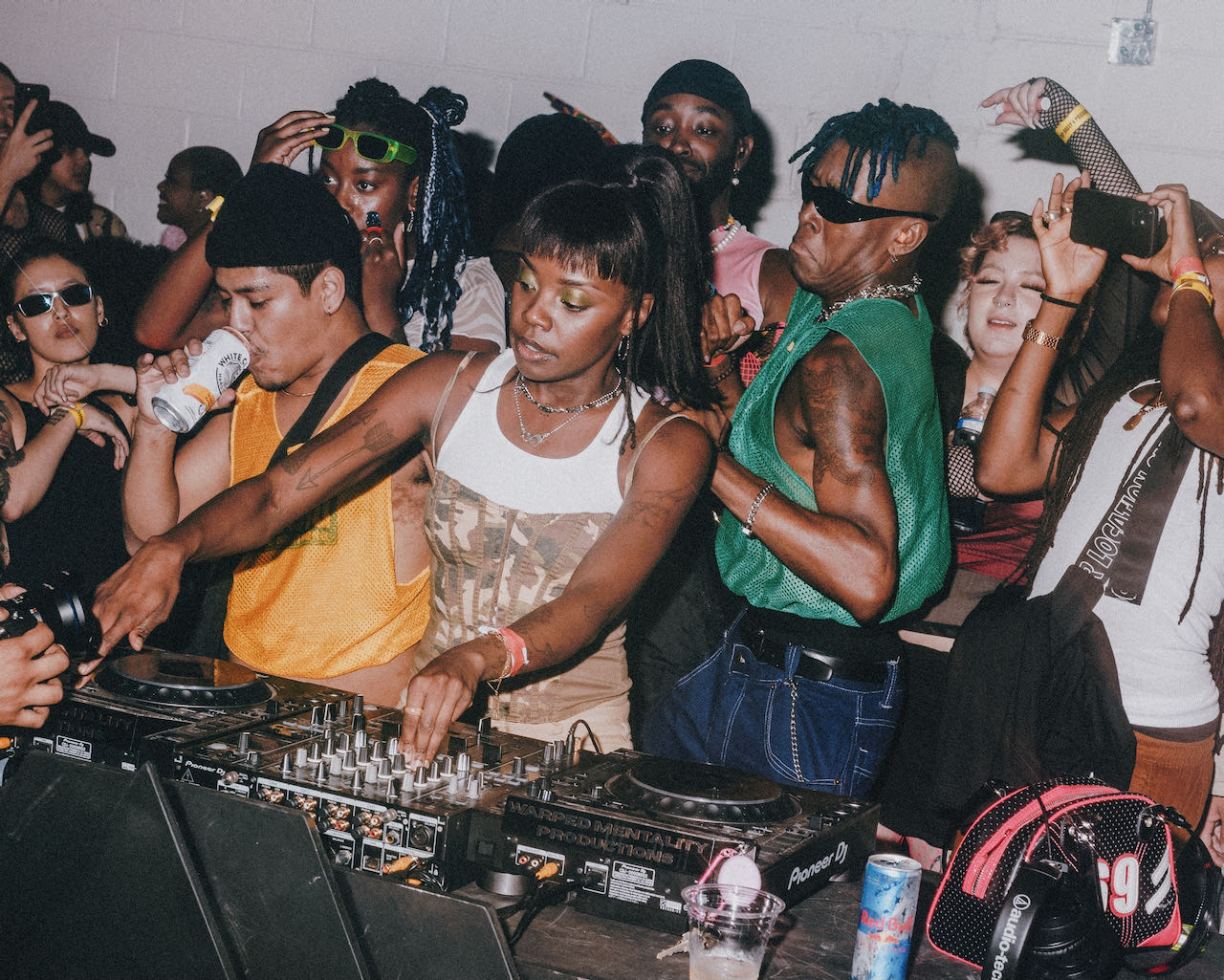

At 3:00 a.m., while the rest of the city sleeps, a quiet, underpaid army stands guard. In overflowing emergency rooms and empty warehouses, at half-completed construction sites and luxury condominiums, we are being protected—or watched, depending on your point of view—by a huge private security force that just keeps growing.
A decade ago, the Canadian security industry was worth $5.5 billion. According to industry analysts IBISWorld, it’s now valued at $8.6 billion. After years of steady growth, says Association of Professional Security Agencies president Grant Buhr, the industry exploded during the pandemic. All those suddenly empty buildings and offices needed to be patrolled. And new, risky frontline posts emerged to control the number of customers entering grocery stores, check vaccine certificates at pharmacies, help with crowd control at vaccination clinics, and point digital thermometers at foreheads.
As COVID has enmeshed the security industry more deeply into the fabric of our lives, security companies boast of a “recession-proof industry.” Meanwhile, guards face isolating work environments and, for some, long hours on their feet, all for salaries starting at $16 an hour—just 50 cents above minimum wage.
No wonder the industry faces constant vacancies. Or, as Buhr puts it: “Job opportunities continue to increase faster than we can staff them.” Industry groups like Buhr’s are pushing Ontario to establish a higher minimum wage for the 109,870 people licensed as security guards in the province. But the dearth of applicants may also come from the public perception of a boring, dead-end job. For years, both Buhr and Securtac Protection Services owner Khuram Malik have noticed a trend among applicants: “A decline,” Malik says, “of working-class Canadians or permanent residents.”
Then, a miraculous solution appeared, with roots in India and the GTA. Over the past six years, say both Buhr and Malik, South Asian international students have flocked to become security guards. Today, young people coming from all over the globe for better lives are, increasingly, the ones watching over us at 3:00 a.m.
For Jaswinder, a security guard isn’t a rent-a-cop joke, but, as he says, “a white-collar job.”
Brampton, the fastest-growing city in Canada, is a place for turning dreams into new lives. After English and French, Bramptonians most often dream in Punjabi.
For Jaswinder, a 27-year-old international student at Alpha College of Business and Technology, Brampton is a gateway to paradise. Never mind that he and a childhood friend have to share a one-bedroom basement apartment, nor that their rent equals half a year’s salary back in Punjab. At least he has his dream job—or, his transitional dream job—working as a security guard, often overnight. (As a newcomer hoping for permanent residency, Jaswinder asked to use a pseudonym.)
“I am lucky, I feel,” Jaswinder says of his late-night shifts watching over Brampton. When he first arrived from India, he worked doing heavy lifting and driving a forklift when he wasn’t in class, all to save up for training and a security guard license. Now he takes open shifts at a large nationwide security firm. One night he might be in the emergency department watching over a waiting room full of patients, the next he might be guarding Brampton City Hall. For Jaswinder, a security guard isn’t a rent-a-cop joke, but, as he says, “a white-collar job.”
Jaswinder is part of an avalanche of international students that have made their way to Canada in recent years—from 274,700 in 2012 to 621,565 last year. That influx is not accidental, nor is it simply a byproduct of the United States’ careening international reputation. The Canadian government has run an expertly-crafted promotional campaign marketing Canadian education to international students. “This is the quickest, fastest and cheapest way for the Canadian government to populate the country,” says Anupma Sharma Cvejic, co-founder of Sunoh, a Brampton community organization that supports international students. At the same time, permanent residence and citizenship applicants face atrocious backlogs.
The international student industry has a hierarchical food chain: Recruiters funnel students to schools for commissions, overpromising a painless path to permanent residence. International tuition costs up to nine times domestic tuition, and community colleges and universities can rake in millions a year. In 2021, Jaswinder and 217,409 other students arrived from India, more than from any other country. (India has been the top source of students since 2016, which set off the international student security guard boom.) Many Indian parents risk everything to send children here, selling or taking out loans on farmlands to invest in their children, with the hope they will someday pull the whole family up behind them.
After arriving, students immediately have to work to make tuition, pay exorbitant GTA housing costs, and send money home. Many students skip meals to make wages stretch. But until a few weeks ago, federal law prevented international students like Jaswinder from working more than 20 hours per week at risk of deportation. Plenty still worked beyond 20 hours, but for employers paying under the table in cash, for as low as $5 an hour. As Sharma Cvejic puts it: “The precarious work that no one else wants to do is what international students do.”
For exploitative employers and scammers, international students are easy prey. Jaswinder’s fiancé, Hardeep, calls Brampton “the hub of scams.” A con artist promises a wad of bills for cashing a cheque, says Sharma Cvejic, and then the international student ends up unwittingly committing insurance fraud. Or Canadian-born Indian men force male students to commit burglary or carjackings. Or cross the border as their drug mules. “Guess what?” Sharma Cvejic says. “Here’s just another person taking advantage of them.”
The security industry is no different. The presence of bad actors in the security industry, say security experts Malik and Buhr, is an open secret. “There are security companies that exploit these guards,” Malik says. The con goes like this: a security company advertises cash jobs paying under minimum wage to international students (“Please dm who can cvr these shifts $15 cash,” reads one message in a Telegram group for students). Then the company turns around and quotes such low rates to clients that no above-board company can compete.
Buhr gives an example from a municipal bid process. “The incumbent was a large corporation that bid at cost to retain the business,” he says. “And was absolutely killed on pricing,” with another business winning the contract with a bid too low for any company to break even paying legitimate rates. Wage exploitation compounds itself, Malik says, with students always losing: “Clients are asking for way too low of a fee—because they know that companies can extort these students.”
Jaswinder is fortunate to be protected from the worst exploitation by his family’s relative wealth. He doesn’t need to send money home like most students. And he learned the ropes of security work from his fiancée, so he could avoid the pitfalls she’d endured as a security guard: watching over an unheated condo building under construction, alone, overnight in the middle of winter.
But even Jaswinder’s family’s money and his security job cannot shield him from all risk. This Jaswinder knows firsthand.
Years before he decided to leave India, several of his cousins migrated abroad. One came to Canada to study, and bought a new car. A year into his studies, the cousin flunked an exam and had to pay $8,000 to repeat the semester. Then he lost his job. Devastated, he jumped into Niagara Falls.
Heartbreakingly, Jaswinder’s cousin’s story is not unique. GoFundMe is filled with campaigns to help Indian families bring their children’s bodies back home. After all, many have now lost their investment in their collective future along with their beloved children. Sharma Cvejic co-founded Sunoh to help prevent suicides. “How many students have to die,” she says, “before someone gives a shit?”
The presence of bad actors in the security industry, say security experts Malik and Buhr, is an open secret.
“When I told my parents that I’m planning to go Canada,” Jaswinder says, “they told me to stay strong.” If Jaswinder ever misses his mom’s calls, she hounds him down, calling his roommate to make sure he is OK. She’s overjoyed that Jaswinder and Hardeep got engaged last month; now she has another team member to help protect her son. She is still as protective of him as she was whenever he had a fever as a child. Awake all night, watching over him.
At 3:00 a.m. in Brampton Civic Hospital, Jaswinder takes on the role of protector. After the visitors have gone and all is quiet, he is responsible for mentally ill patients, checking on them and recording their activities all night. He sits, reads a magazine, sips coffee. This is Jaswinder’s favourite time at work. For the solitude. The silence.
This is also when homesickness seeps in. His mind wanders to his family, especially his mother and her cooking. As Jaswinder describes this, his voice becomes dreamy. In his mind, he works through his plans. The project management degree he has nearly finished. The food technology job he will search for after graduating—because work during studies doesn’t count towards the points he’ll need to apply for permanent residence. The money he will save up to marry Hardeep in a couple of years. The children they will have. The financial support he will provide his parents after they retire. He plans to bring them to Canada someday. His parents can decide if they want to stay; it may be too boring for them with him and Hardeep working, and the children in school all day. India can support his parents’ dreams. It cannot support Jaswinder’s. This makes him neither bitter nor sad. For now, his nights are for guarding an imperfect paradise.







